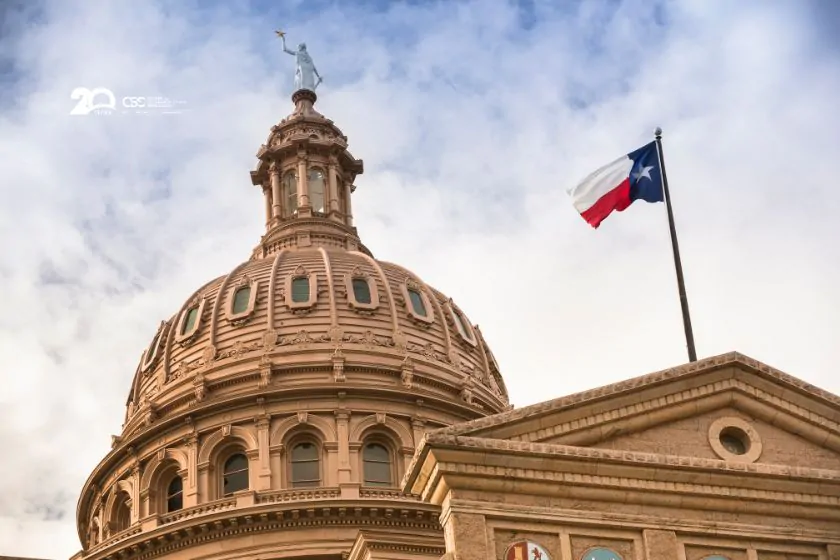Texas Judge Blocks Controversial DEI ESG Law
On August 29, 2025, a federal judge in Austin, Texas, issued a ruling that immediately captured the attention of investors, corporate boards, and sustainability professionals across the United States. According to Reuters (Jonathan Stempel, 2025), Judge Alan Albright blocked the enforcement of Senate Bill 2337, a Texas law designed to restrict proxy advisers from giving advice on diversity, equity, inclusion (DEI) and environmental, social, and governance (ESG) practices.
The law was scheduled to take effect on September 1. Instead, it is now on hold after two of the most influential proxy advisory firms, Glass Lewis and Institutional Shareholder Services (ISS), challenged it in court.
Why This Law Matters
Senate Bill 2337 would have required proxy advisers to label any recommendations involving DEI or ESG as “non-financial,” while also demanding they provide financial analyses to justify such recommendations (Reuters, 2025). On the surface, the law framed itself as a push for clarity. In practice, it would have limited the ability of advisers to freely analyze issues that investors increasingly care about, such as climate risk, workforce diversity, or board accountability.
Glass Lewis and ISS argued that the law violated their First Amendment rights by forcing them to frame advice in a way that aligned with the state’s political views. Judge Albright agreed that the law raised constitutional concerns (Westlaw, Case No. 25-01153; Case No. 25-01160).
This matters because proxy advisers serve as trusted voices for thousands of institutional investors, including pension funds and asset managers. When they provide voting recommendations on board elections, executive pay, or climate transition plans, investors listen. Restricting their language would have meant restricting investor choice.
The Bigger Political Backdrop
This ruling is not only about one law, it reflects a national debate over ESG and DEI in corporate America.
Several Republican-led states have introduced measures aimed at curbing ESG practices, often arguing that they are political rather than financial. At the same time, many companies have scaled back or ended DEI programs, a trend that has gained momentum as political opposition increased. Former President Donald Trump has made eliminating DEI programs a top priority, as noted in Reuters (2025).
In this environment, Senate Bill 2337 became more than regulatory detail. It symbolized the broader clash over the future of corporate responsibility in the United States.
Why Investors Should Care
Investors need independent, fact-based advice. Proxy advisers like ISS and Glass Lewis provide exactly that. If states succeed in dictating how advisers present ESG and DEI issues, investors risk losing access to a full picture of corporate risks and opportunities.
For instance, a company may face shareholder questions about climate transition strategies. Without unbiased advice, investors could miss red flags on stranded assets, regulatory exposure, or reputational harm.
The injunction ensures, at least for now, that investors still receive comprehensive guidance. After the ruling, ISS reaffirmed its commitment to “rigorous, fact-based analysis” to help clients meet fiduciary duties, while Glass Lewis welcomed the injunction and emphasized its independence (Reuters, 2025).
Implications for Sustainability Professionals
For professionals working in sustainability, ESG, or corporate governance, this ruling has direct consequences. It demonstrates how political decisions can shape the frameworks used in daily work.
When ESG advice is restricted, companies face less shareholder pressure to act on climate change, diversity, or governance reforms. That weakens the progress built over the last decade. On the other hand, the court’s injunction shows that legal protections can safeguard professional independence and preserve the right to analyze material risks, even when those risks fall under politically sensitive topics.
Connecting the Ruling to Professional Growth
This legal case raises a key question: how can professionals keep pace with laws and political pressures around ESG?
ESG today is not only about reporting carbon data or publishing diversity numbers. It is about navigating political headwinds, understanding regulatory frameworks, and making a business case for sustainability in challenging environments.
That is why professional training is more critical than ever. Courses that combine practical ESG knowledge with insights into global policy trends prepare professionals to lead with confidence and credibility.
A Training Designed for Today’s Challenges
If you want to strengthen these skills, the Certified Sustainability Practitioner Program – Advanced Edition provides the right opportunity.
Developed by the Centre for Sustainability and Excellence (CSE), this program equips professionals to:
-
Master ESG reporting and disclosure standards.
-
Integrate sustainability into business operations.
-
Understand regulatory changes and their impact on corporate strategies.
-
Build leadership skills to drive measurable outcomes.
Whether your role is in finance, operations, risk management, or corporate responsibility, this course ensures you stay ahead. As the Texas DEI ESG law 2025 case demonstrates, the landscape is evolving rapidly. Training is not optional, it is essential.
Final Thoughts
The Texas DEI ESG law 2025 is a reminder that sustainability is shaped by politics and policy as much as environmental metrics. For investors, it underscores the importance of protecting independent advice. For companies, it signals that ESG remains a core concern, regardless of political shifts.
For sustainability professionals, the ruling is a call to stay informed and prepared. Legal battles will continue, but the demand for credible ESG expertise is only increasing.
If you are ready to advance your career and deepen your impact, consider joining the upcoming Certified Sustainability Practitioner Program – Advanced Edition.







